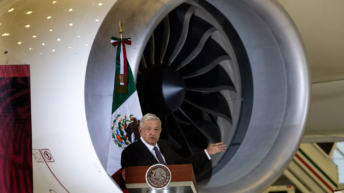Trade between North Korea and Russia sees growth, raising concerns about arms flowing to Ukraine amidst a delicate geopolitical climate.
Satellite images reveal increased activity at the Najin port near the North Korean-Russian border, indicating a surge in trade, potentially involving arms shipments to Ukraine. The US has accused North Korea of supplying munitions to Russia, with the weapons later destined for use in the Ukrainian conflict.
The Najin port, previously dormant, has witnessed a steady stream of ships, loading and unloading hundreds of shipping containers. The heightened activity since October aligns with US allegations of North Korea’s involvement in arms transfers to Russia.
The US and South Korea claim that these shipments, including hundreds of thousands of artillery shells, could play a crucial role as divisions in the US Congress and European Union over military aid to Ukraine threaten its ability to counter Russian aggression.

Despite North Korea’s denial of arms sales due to a 15-year ban, satellite data analysis suggests ongoing significant exchanges, possibly involving weapons and military supplies. Recent imagery indicates the presence of a sanctioned Russian container ship unloading cargo in Najin’s port, highlighting the active trade route between Najin and Dunay, Russia.
As North Korea-Russia trade intensifies, the flow of US military aid to Kyiv faces challenges, with the Pentagon anticipating a funding shortfall by December 30. With most lawmakers on holiday, the approval of additional funding appears unlikely.
The reactivation of Najin port, identified as a former Soviet submarine base, has turned it into a vital hub for trade between North Korea and Russia. While satellite imagery captures steady activity, vessels docking at Najin often turn off international transponders, becoming “ghost ships” during the journey to Dunay.
A report by the Royal United Services Institute (RUSI) suggests ongoing arms deliveries pose a significant threat to international security. The trade appears to persist despite previous US sanctions and global awareness of the activity.

South Korea’s National Intelligence Service has reported around ten shipments of weapons from North Korea to Russia since August, potentially exceeding one million rounds of artillery. The munitions stockpile in North Korea complements Russia’s weapons on the Ukrainian front lines.
The impact of these deliveries on the battlefield could allow Russia to maintain higher pressure on Ukrainian forces. The additional one million shells could result in firing approximately 2,700 more rounds per day, further challenging Ukraine’s artillery procurement efforts.
While the pace of North Korea’s deliveries may slow down as inventories deplete, concerns linger about the potential consequences of the rekindled North Korea-Russia trade. The economic and military support Kim Jong Un receives from Russia could exacerbate tensions on the Korean Peninsula and impact international security dynamics. The partnership between North Korea and Russia is likely to continue, with both nations finding mutual benefits amid geopolitical complexities and international sanctions.





